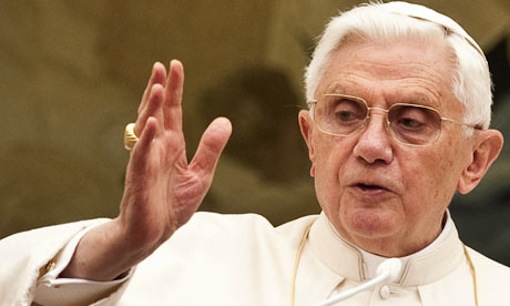
Helt siden jeg nærmet med Den katolske Kirke tidlig på 90-tallet, har Ratzinger (da kardinal, nå pave) stått for meg som den viktigste teologen. Og på FirstThings leser jeg i dag at andre ser på ham på samme måte:
… it is probably best to discuss the theological body of work he produced from 1981 to 2013, rather than simply his last eight years as bishop of Rome. For if one conjoins his papacy with his long service as Prefect of the Congregation for the Doctrine of the Faith, then his lasting theological legacy comes into sharper focus: For over thirty years, Benedict has effectively served as the chief interpreter of the Second Vatican Council.
A century hence, theologians and historians will look back on this period as a crucial one for the reception of Vatican II. And the role of Joseph Ratzinger, who wrote scores of official magisterial documents on all aspects of conciliar teaching, will be underscored. While these statements usually fall far short of infallible teaching, and remain open to continued theological discussion, they nonetheless carry significant weight in Catholic theology.
Just a cursory and incomplete review of documents emanating from Ratzinger’s pen shows the depth of his influence as a conciliar interpreter. He has authoritatively taught on issues that have been widely discussed since the council’s conclusion: the unique nature of priestly ministry (1983); the strengths and weaknesses of liberation theology (1984 and 1986); the precise meaning of the claim that the Church of Christ “subsists in” the Catholic Church (1985); the assent required for specific magisterial teachings (1995 and 1998); the proper understanding of the phrase “sister Churches” (2000); and the declaration Dominus Iesus on the salvific universality of Jesus Christ (2000).
Benedict’s role as conciliar interpreter came even more vigorously to the fore with his Christmas Address of 2005, a speech that will likely remain the Ground Zero of conciliar discussions. There, the pope definitively rules out “a hermeneutic of rupture and discontinuity” as well as any antipodean reading of the spirit and text of the council. He explicitly proscribes a method that would seek to discover “impulses toward the new” apart from the conciliar documents themselves. …
